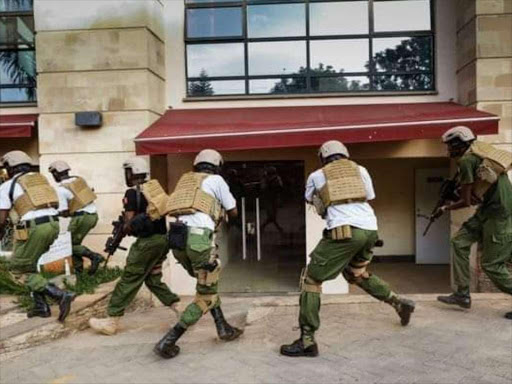Nairobi,Kenya-The United States has confirmed the death of Mohamed Mire, a senior leader of the al-Shabaab militant group, following a targeted airstrike in Somalia on December 24, 2024. Mire, who also went by the name Abu Abdirahman, had been one of the group’s most influential figures for over 15 years, serving as its finance chief and playing pivotal roles in planning and executing several high-profile attacks across East Africa.
According to U.S. Africa Command (AFRICOM), the airstrike took place near the town of Quyno Barrow, approximately 260 kilometers from Mogadishu, the capital of Somalia. The strike resulted in the deaths of two al-Shabaab militants, including Mire, and was part of ongoing efforts by U.S. forces to degrade the militant group’s operations in the region. AFRICOM has emphasized that no civilians were harmed in the operation, though it has declined to release further details about the mission.
A Senior Leader in Al-Shabaab’s Ranks
Mire’s death marks a significant blow to al-Shabaab, a group that has waged a violent insurgency against the Somali government and its allies for more than a decade and a half. As one of al-Shabaab’s longest-serving members, Mire was instrumental in shaping the group’s strategy and governance. He held several key positions within the organization, including the head of al-Shabaab’s finance department and, later, the group’s interior ministry equivalent, overseeing the organization’s regional governance in southern Somalia.
“Mire was a key player in al-Shabaab’s strategic decision-making and played an essential role in managing the group’s finances,” said U.S. Marine Corps Gen. Michael Langley, AFRICOM’s commander. “His leadership was crucial in coordinating the group’s operations both inside Somalia and in neighboring countries like Kenya.”
Key Role in Notorious Attacks
Mire’s influence extended beyond financial oversight and governance. He was directly linked to the planning and facilitation of some of the most devastating attacks carried out by al-Shabaab in Kenya. Most notably, he served as the finance head during the infamous Westgate Mall attack in 2013 and the DusitD2 attack in 2019.
On September 21, 2013, four al-Shabaab militants stormed the Westgate Mall in Nairobi, killing at least 67 people, including 62 civilians and five Kenyan Defense Forces officers. The siege lasted for four days, with the attackers engaging in a deadly standoff with security forces. While the attackers were eventually killed, the event marked one of the deadliest terrorist attacks in Kenya’s history.
Six years later, on January 15, 2019, al-Shabaab militants launched another attack in Nairobi, this time targeting the DusitD2 hotel and office complex. Five attackers stormed the premises, killing 22 people and injuring dozens more. The attack was a stark reminder of al-Shabaab’s ongoing threat in the region and its ability to execute complex operations, often targeting Western and international interests.
Mire’s role in financing and facilitating such attacks, which took the lives of dozens of innocent civilians, highlights his importance within the al-Shabaab leadership. His involvement in the group’s operations and his strategic decision-making cemented his reputation as a senior figure in the organization.
U.S. Designation and International Sanctions
In October 2022, the U.S. government designated Mire as a global terrorist due to his high-ranking position within al-Shabaab. His actions, including his involvement in large-scale attacks and his leadership over the group’s financial operations, were deemed critical to the group’s continued effectiveness. The U.S. also linked him to al-Shabaab’s broader efforts to destabilize East Africa, particularly Somalia, where the group controls large swaths of territory in the southern and central regions.
Mire was also placed on a sanctions list by Somalia’s anti-money laundering committee in July 2024, along with several other al-Shabaab leaders. His role in the group’s regional governance and internal security measures underscored his significance within the organization.
A Continued Effort to Combat Al-Shabaab
The death of Mire is part of a larger campaign by the U.S. military to combat al-Shabaab’s growing influence in the Horn of Africa. U.S. forces have been involved in training, advising, and equipping Somali security forces to counter the militant group. AFRICOM has pledged to continue its operations, including airstrikes against key figures within the group, as part of a broader strategy to weaken al-Shabaab and its capacity for terror.
“Somalia remains a central focus of our efforts in East Africa,” Gen. Langley stated. “We will continue to work with our partners to degrade al-Shabaab’s capabilities and prevent further attacks on innocent civilians.”
The U.S. military’s targeted strikes against senior al-Shabaab leaders have been a key component of this strategy. In 2023, a similar airstrike killed another high-ranking al-Shabaab leader, Kenyan Maalim Ayman, who was linked to the 2020 attack on a U.S. military base in Kenya.
Al-Shabaab’s Ongoing Threat
Despite the loss of key leaders like Mire, al-Shabaab continues to control significant territories in Somalia, particularly in the southern and central regions. The group has maintained its insurgency against the Somali government and has carried out regular attacks on military, governmental, and civilian targets in both Somalia and Kenya.
Al-Shabaab’s continued operations in the region, combined with its complex network of militants, financiers, and planners, pose a persistent challenge to the stability of Somalia and the broader East African region. However, the killing of leaders like Mire is seen as a step forward in weakening the group’s operational capacity.
The U.S. and its allies remain committed to supporting Somali forces in their fight against al-Shabaab, with ongoing efforts to disrupt the group’s financial and logistical networks, as well as eliminate key leaders from its ranks. As the region continues to grapple with al-Shabaab’s violent insurgency, the fight against terrorism remains a priority for both local governments and international partners.
Telegaraf News

